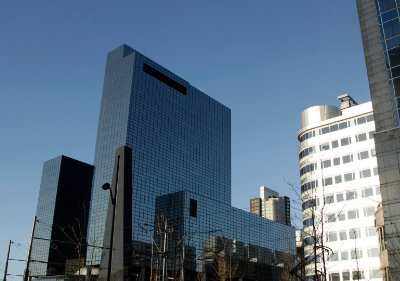Source: studyinholland.nl
The first thing that many internationals notice when first joining a Dutch workplace is how flat the organizations tend to be. In the Netherlands, the line that divides supervisors from their staff is very thin. Everyone is treated equally, and the common practice is to address your colleagues by their first names and with a familiar tone regardless of their age, degree of studies, or position in the company. And yes, that includes your boss. Be aware, however, that the relaxed and generally informal atmosphere does not mean that no hierarchies exist. To avoid conflicts, you must clearly understand everyone’s roles and responsibilities and always conduct yourself with respect and professionalism.


Communication and decision making
Whether it’s about government officials discussing a new law or a group of friends trying to pick a restaurant for an evening out, the search for consensus is deeply rooted in the Dutch culture, and the workplace is no exception to this. Making decisions involves lengthy and sometimes heated debates where all ideas are presented and thoroughly scrutinized until an agreement is reached. You can expect lots of meetings in which close encounters with the famous Dutch directness are difficult to avoid: honest feedback will be given directly and without beating around the bushes, to the point that some people might perceive as rude. As a person who prefers avoiding confrontation, it took me some time to get adjusted to such a way of working and communicating. The important thing is not to take matters personally and making sure that all your ideas are backed up by facts. Likewise, remember that you’re not only allowed but also expected to voice your opinions. Failing to do so might harm the image that your teammates have about you.
Time management
If you ask a group of internationals what’s their favorite thing about living in the Netherlands, a vast majority will pick the work-life balance. This is no surprise considering the rather strict separation between business and personal time that exists in most industries. At work, time is spent effectively, and other than a short lunch break—typically half an hour—and a couple coffee breaks, the average employee dedicates their full attention to work. On the other hand, doing work-related tasks outside of business hours is uncommon. Leisure activities and time spent with family and friends are highly valued. Furthermore, as in many European countries, holidays are very important for the Dutch, and completely disconnecting from work for 2 – 3 weeks at a time is completely normal. An interesting point is that, during the summer, a lot of employees go on vacation simultaneously. During this period, dealing with international partners and customers or keeping big projects moving with a reduced staff can become more challenging.
The human factor
The Netherlands has arguably one of the best communication infrastructures in the world, allowing the country to consistently be an early adopter of business-oriented technologies. In spite of this, at least in my experience, the human factor still has a central role in the way business is conducted. Face-to-face meetings are the preferred way of communication, and remote working—although widely available—is perceived more as an alternative for extraordinary circumstances than a regular habit. In this regard, housing scarcity in big cities, environmental concerns, and more recently, the COVID-19 health crisis, have triggered the discussion about the way we use business technologies and the cultural perceptions we have towards them. We can expect some drastic transformations in this regard in the coming years.
The points we just discussed are a generalization of behaviors that one can encounter while working in the Netherlands. Naturally, every company has a culture of its own, and region-specific circumstances can also have an effect on people’s behavior. In addition to this, the Dutch workforce is steadily becoming more international, bringing new perspectives and ways of thinking into the mix. That being said, it’s easy to realize that navigating the Dutch business culture often means navigating a globalized business culture. As complex as that might sound, simply being mindful of both cultural differences and similarities with your colleagues will already put you on the right road towards pleasant and productive days at work.
For more information or interviews, please contact Study in Holland.








































